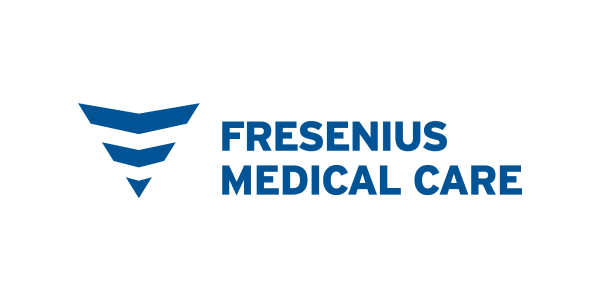
Qt FRAMEWORK
Speed & Quality to Software Development
Build complete cross-platform products and product lines with Qt Framework. It’s a comprehensive set of libraries and APIs for flexibly combining powerful user interface components and time-saving core functionality.
Build Better Software Faster
Qt Framework provides everything developers need in one place, making software development faster and smarter. This means less complexity, fewer integration issues, and more time spent building features that matter, helping teams deliver faster and with confidence.
Cross-Platform Scalability
Run your software on various devices, platforms, and product lines, reducing complexity and shortening your time-to-market.
Scale Across PlatformsComprehensive Building Blocks
Create complete software products using a wealth of building blocks across the architectural layers, taking away routine tasks and focusing on your unique business logic.
See Qt’s Key CapabilitiesStability Like Nowhere Else
Build your software on a framework that is known for its reliability and consistency, making it a safe choice also for long-term projects.
Keep Your Software Reliable1+ Billion Devices and Applications Are Powered by Qt Framework




.png)



.png)
.png)






.png)



.png)
.png)






.png)



.png)
.png)


Qt Framework naturally enables creating components that can be reused across projects and appliances.
Daniel Dersmann, Head of Global GUI Framework Development, BSH

EFFICIENCY ACROSS PRODUCT LINES
Scale with the Cross-Platform Qt Framework
With Qt Framework, your products run smoothly regardless of the operating system.
Reusable Code
Code once and deploy across embedded, mobile, and desktop platforms with minimized rework:
- A single codebase that adapts across platforms,
- Support for multiple product lines.
Shorter Time-to-Market
Skip the need for multiple platform-specific skills. Reduce development and maintenance efforts. Prototype rapidly. And as a result, get your product to the market fast.
Deploy Across Platforms
No more heavy and slow cross-platform frameworks; Develop rapidly with ready-made components and efficiently deliver with real-time, fast responsiveness and consistent user experience across various devices, platforms, and product lines, reducing complexity and shortening your time-to-market.
Embedded Devices
Run Qt across a variety of devices from smart home appliances to cars to medical devices and to industrial GUI software, meeting the highest quality standards.
Run Qt on Embedded DevicesDesktop & Web
Run Qt across a variety of platforms and operating systems, including Windows, Windows on Arm, macOS, Linux, and web with native performance.
Run Qt on DesktopMCUs
Reuse your UI in the realm of embedded microcontrollers, enabling smartphone-like user experiences on resource-constrained devices.
Go to Qt for MCUsMobile Platforms
Run Qt-powered companion mobile apps across Android and iOS platforms, or add flare like 3D graphics even to your native mobile application.
Run Qt on Android & iOSWhat Our Customers Have Achieved with Qt Framework
Try Qt Without Installation—Right in Your Browser!
Explore Qt’s power in your browser with no downloads. Test and edit demos, see its potential, and bring your ideas to life!

Key Capabilities of Qt Framework
Qt Framework provides developers with a comprehensive set of ready-made, customizable, and very toolable building blocks from UI components to core functionalities. Qt’s libraries and APIs together with the intuitive and declarative QML language provide a clear separation between frontend and backend, enabling your teams to deliver maintainable, clearly structured software.
User Interfaces
Build the kind of UI you need by mixing and matching from the most extensive set of basic and enriched components that are readily suitable for cross-platform use.
3D
Create stunning 3D UI components that run smoothly on real-world hardware and software.
Graphics
Include high-performant 2D and 3D vector graphics into your UI for engaging user experiences.
Graphs
Easily create and customize dynamic 2D & 3D data visualizations from simple to complex needs.
Networking & Connectivity
Remove the complexity of your setups by using a wealth of networking and connectivity protocols and standards as one, consistent entity.
Data Handling
Ease your development efforts with ready-made, cross-platform capabilities to send, receive, save, load, query, manipulate, and serialize data - from UI to I/O.
Accessibility
Easily create cross-platform products for all users, regardless of their ability or environment.
Cybersecurity
Build and maintain secure products easier with ready-made building blocks and robust practices.
Functional Safety
Develop modern embedded systems that are both functionally safe and fully dependable.

SAFE CHOICE
Keep Your Software Reliable Over Time
Build your product with greater certainty on a proven, stable, and supported foundation, making it a safe choice also for long-term projects.
Upgradability
Easily stay compatible with latest operating systems and hardware without costly rewrites. Evolve your product to meet changing usability and use case needs.
Longevity
Qt has been around for decades and continues to evolve with robust and continuous maintenance. Its sustainability is further backed up by the vast open source community.
Develop Consistently with Qt Framework
Release Cycle
Qt Framework’s Major, Minor, and Maintenance releases provide new features and maintenance for all needs.
Long-Term Support
When your product need to run smoothly for years, LTS provides a solid foundation for development stability.
Licensing
Qt’s Dual Licensing Model comes with options for both scalable businesses and community projects.
Qt is more than just a UI tool; it serves as the technological backbone.
Seonggong Moon, Head of Product Development, Oncosoft
Latest Blogs on Qt Framework

Organizing ID-Based Translations with Labels in Qt Linguist
Translating large Qt applications can be challenging, especially when ...

Qt 6.8 RTOS Update
It’s been a while since our last RTOS support update so we wanted to m...

Development Tools
Qt provides a wealth of tooling to choose from, including its own integrated development environment (IDE) and support for other IDEs.
Community
The Qt Project governs the open source development of Qt, welcoming anybody wanting to contribute to join the effort.
Get Started with Qt Framework
Build complete cross-platform products with Qt Framework’s comprehensive set of libraries and APIs for UIs and core functionality.
